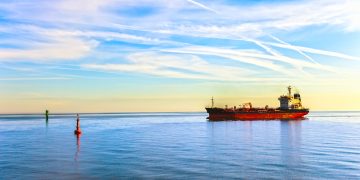The Maltese government has presented the updated National Energy and Climate Plan (NECP) to the European Commission committing to achieving a 25% renewable energy target by 2030.
On the updated NEPC document, Malta underscores its strategic maritime position and highlights its efforts to enhance sustainability in the maritime sector. This includes improving energy efficiency, promoting the use of renewable energy sources in maritime transport, and reducing greenhouse gas emissions from ships.
Furthermore, Malta is focusing on increasing the adoption of green technologies in shipping and port operations, and improving the overall environmental performance of its maritime industry to meet EU climate and energy targets.
Key takeaways:
- Encouraging sustainable shipping practices and green ship technologies.
- Promoting alternative fuels such as LNG (liquefied natural gas) and hydrogen for maritime transport.
- Upgrading port infrastructure to support the transition to greener maritime operations.
- Developing strategies for reducing emissions from maritime activities, in line with EU regulations.
- This approach is part of Malta’s broader goal to align with the EU’s Green Deal and reduce its carbon footprint, while maintaining the competitiveness of its maritime sector.
Moreover, the Maltese government is providing shore-to-ship (StS) infrastructure powered by electricity at the Grand Harbour and, in the future, also at the Malta Freeport, the two Core Ten-T ports, with the ultimate aim of shifting away from the dependency on heavy fuel oils while vessels are moored in these ports. The investments made by the Just Transition Fund (JTF) in OPS for the Southern region of the Grand Harbour complement the existing “Grand Harbour Clean Air Project,” initiated in 2020 under the Connecting Europe Facility (CEF).
This transition is particularly important due to the ports’ proximity to densely populated residential and business areas. The investment in OPS infrastructure will facilitate sustainable maritime operations, improve environmental conditions, and protect the public health of local residents in the surrounding areas. An allocation of €23.3 million has been approved from the JTF for this purpose.
In addition, access to clean maritime fuels is a top priority for the decarbonisation of the shipping sector. For shipping to reach its decarbonisation goals and for Europe to become the first carbon-neutral continent, Malta highlights the importance of addressing the supply and affordability barriers of alternative clean fuels through the development of capacity, access to, and infrastructure for green maritime fuels.
In the plan it is stated that the industry will, for the first time, be competing for fuels with other industries. Therefore, to ensure that the industry can continue to perform its role as a provider of security of supply, it is crucial to focus on ensuring that fuel suppliers can provide enough clean and safe fuels produced or capable of being supplied for the maritime sector.
This plan represents a transformative commitment to strengthen Malta’s sustainability and resilience. We have undertaken, are undertaking, and will continue to make major changes.
…said Miriam Dalli, Minister for Environment, Energy and Regeneration of the Grand Harbour.
































































